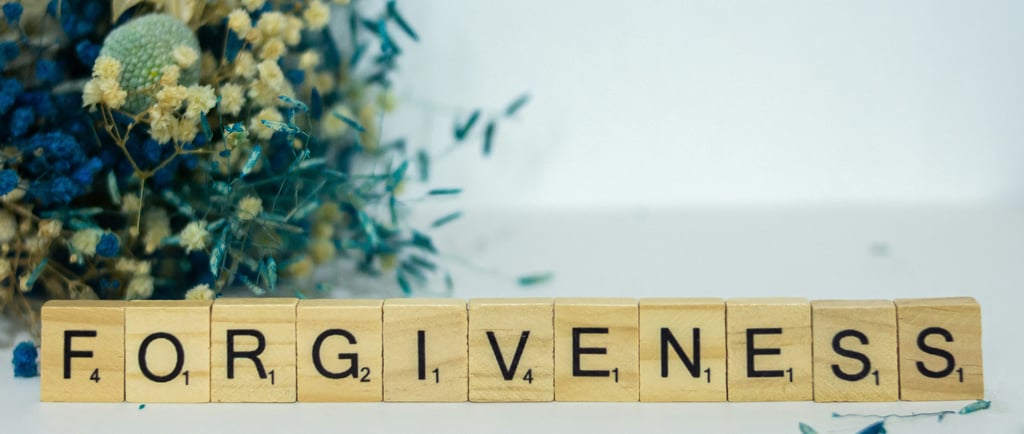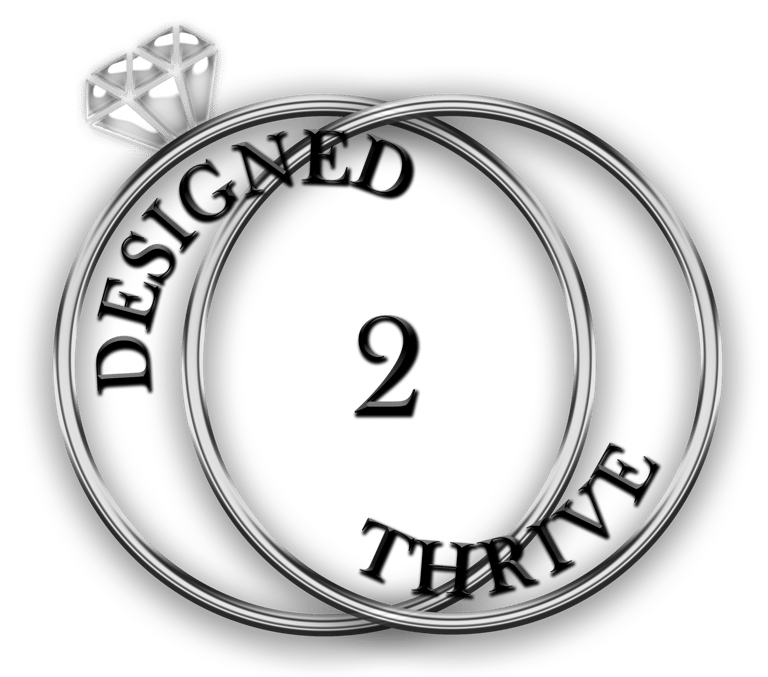Finding Forgiveness: Letting Go and Moving Forward Together
We believe that forgiveness is one of the most powerful ways God restores relationships. Forgiveness isn’t forgetting or pretending something didn’t hurt. It’s choosing to release bitterness, offer grace, and trust God to do the deeper work of healing.
6/12/20254 min read


In any close relationship, especially marriage, there are moments of pain, disappointment, and conflict. Sometimes it’s a harsh word spoken in anger. Other times, it may be a deeper wound: betrayal, neglect, or a breach of trust.
But no matter the size of the hurt, every couple must face this question: Will we hold on to the offense, or will we choose to forgive?
We believe that forgiveness is one of the most powerful ways God restores relationships. Forgiveness isn’t forgetting or pretending something didn’t hurt. It’s choosing to release bitterness, offer grace, and trust God to do the deeper work of healing. When couples embrace biblical forgiveness, they open the door to true freedom, restored intimacy, and long-term unity.
Why Forgiveness Matters
Marriage is built on love, but it’s sustained by grace. That means offering mercy not just when it’s easy, but when it’s hard.
Ephesians 4:32:
“Be kind and compassionate to one another, forgiving each other, just as in Christ God forgave you.”
Forgiveness is not optional for Christians. It’s central to our faith. Just as Christ forgave us fully and freely, we’re called to extend that same mercy to our spouse, even when it’s difficult.
What Happens When We Don’t Forgive?
Walls begin to form between hearts.
Bitterness takes root, making even small issues feel overwhelming.
Communication breaks down as trust erodes.
Joy and intimacy fade, replaced by distance and resentment.
Unforgiveness slowly drains the life out of a marriage. But forgiveness breathes life back in.
Common Questions About Forgiveness
“If I forgive, does that mean I have to forget?”
Not at all. Forgiveness is not amnesia, it’s release. You may remember what happened, but you no longer use it as a weapon. You are able to remember without resentment.
Isaiah 43:25 gives us a glimpse of God’s model:
“I, even I, am he who blots out your transgressions, for my own sake, and remembers your sins no more.”
This doesn’t mean God forgets; it means He chooses not to hold our sins against us. That’s the same posture we’re invited to take in marriage.
“What if my spouse hasn’t apologized?”
Forgiveness is about your heart, not their behavior. While reconciliation does require both people, forgiveness starts with one. You can choose to let go of anger and resentment even if the other person isn’t ready to acknowledge the pain or even apologize.
“Forgiving is an honest release even though it is done invisibly, within the forgiver’s heart.” – Forgive & Forget, Lewis B. Smedes: Healing the Hurts We Don’t Deserve
Romans 12:18:
“If it is possible, as far as it depends on you, live at peace with everyone.”
You can’t control your spouse’s response, but you can control your obedience to God.
“How do I forgive when the hurt runs deep?”
Deep wounds require time, prayer, and sometimes even the help of a Christian counselor. But healing starts when you acknowledge the pain and choose to entrust justice to God.
Psalm 34:18:
“The Lord is close to the brokenhearted and saves those who are crushed in spirit.”
Forgiveness doesn’t erase the past, but it frees you from being chained to it.
The Steps to Forgiveness in Marriage
1. Be Honest About the Hurt
God never asks us to ignore pain. Name what happened. Acknowledge how it made you feel. Share that openly with your spouse, not to accuse, but to express. Try to gain some understanding, knowing you’ll never understand everything. But if you can gain insight as to what influenced them in their decision that hurt you, you’ll take a first step toward forgiving.
2. Choose to Forgive Slowly (Even if You Don’t Feel Like It Yet)
Forgiveness is a decision, not a feeling. When you choose to forgive, even before you feel ready, you’re telling your brain and heart to shift from resentment to release. This intentional choice invites God to begin reshaping your mindset and healing the emotional pathways that have been stuck in pain.
“Forgive as the Lord forgave you.” (Colossians 3:13)
3. Release the Offense to God
This is where freedom begins. You say, “God, I give You this hurt. I won’t hold it over my spouse’s head anymore. I trust You to heal and restore.”
Your prayer may sound something like:
“Lord, this wound is real. But Your mercy is greater. I release this hurt to You. Reveal my heart so You can transform my thoughts. Help me gain understanding beyond my emotions, so I can choose forgiveness and begin renewing my mind with Your truth. Teach me how to love again.”
4. Move Forward Together with Grace
Talk with your spouse about how to rebuild trust. It may involve boundaries, accountability, or simply a renewed commitment to kindness. As you walk it out, God will begin to soften hearts and restore intimacy.
When Forgiveness Becomes a Way of Life
Forgiveness in marriage isn’t a one-time event, it’s a rhythm. Daily grace. Ongoing humility. A continual return to the cross.
Matthew 18:21-22:
“Then Peter came to Jesus and asked, ‘Lord, how many times shall I forgive my brother or sister who sins against me? Up to seven times?’
Jesus answered, ‘I tell you, not seven times, but seventy-seven times.’”
You’ll need to forgive over and over, and your spouse will too. But every act of forgiveness is a step toward freedom, healing, and deeper love.
You’re Not Alone in This
At Designed 2 Thrive, we meet many couples walking through pain. You are not the only one struggling to forgive. You are not weak for hurting. You are human, and God is gracious.
Whether you need someone to pray with you, talk through a recent hurt, or guide you toward reconciliation, we’re here to help.
Attend a Marriage Retreat focused on healing and communication.
Join a small group of other couples who are committed to grace-filled marriages.
Reach out to our team with your story. You don’t have to carry it alone.
Final Encouragement
Marriage doesn’t thrive on perfection; it thrives on grace.
Choosing to forgive doesn’t mean you're weak. It means you're strong enough to say, "This hurt me, but I won’t let it define us."
Let God do what only He can. Heal, restore, and renew. Let forgiveness be the bridge to deeper love and greater unity.
If you're ready to take a step toward freedom, we invite you to reach out. We're here to listen, pray, and walk with you as you release the past and move forward, together.
“Blessed are the merciful, for they will be shown mercy.” (Matthew 5:7)
